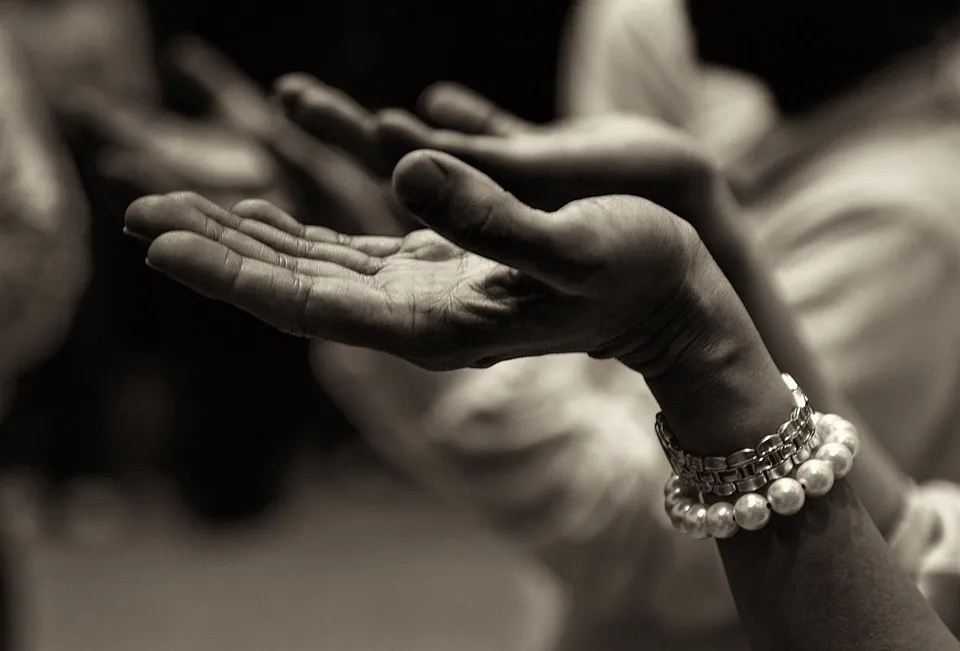Exploring the concept of righteousness is a fascinating and thought-provoking journey. This article will delve into the meaning and origins of righteousness in religion and society, as well as its crucial role in establishing morality, ethics, justice, and character. Additionally, we will discover the importance of righteousness in building and sustaining strong communities, and explore its significance in different religions and philosophies. If you want to develop a deeper understanding of this powerful concept and the rewards and challenges of living a righteous life, keep reading!
The Definition and Origin of Righteousness in Religion and Society

You may have heard the term “righteousness” before, but what exactly does it mean? Righteousness refers to a person’s moral and ethical character, specifically their uprightness, integrity, and goodness. It is often associated with divine justice and reflects the belief that there is a higher power that judges our moral actions.
The concept of righteousness has its roots in religion and can be found in many different faiths and philosophies. In Christianity, righteousness refers to the state of being in right standing with God, achieved through faith in Jesus Christ. Similarly, in Islam, righteousness is achieved through adherence to the teachings of the Quran and the practice of good deeds. Righteousness is also a central tenet of Buddhism, which emphasizes the importance of moral behavior and ethical conduct.

Outside of religion, righteousness is also seen as a desirable trait in society. It is associated with honesty, fairness, and justice, and is often seen as a necessary component of a well-functioning community. In this sense, righteousness is not just a personal attribute, but also a social one.
While the concept of righteousness may differ across religions and cultures, it is ultimately rooted in the idea that there is a universal moral code that we should all follow. This code is based on the principles of justice, fairness, and compassion, and reflects humanity’s shared desire for a just and equitable society.
In summary, righteousness is a concept that is deeply ingrained in both religion and society. It refers to a person’s moral and ethical character, and is associated with honesty, integrity, and goodness. Whether you seek righteousness through religion or through personal conviction, it is a trait that is universally valued and has the power to create a better world for all.
The Role of Righteousness in Establishing Morality and Ethics
Righteousness is a fundamental concept that plays a crucial role in establishing morality and ethics in society and religion. It refers to a person’s adherence to principles of virtue, integrity, and goodness. Most religions believe that living a righteous life is the key to achieving spiritual enlightenment and divine justice.
In society, righteousness serves as a guide to ethical conduct. It influences how people should treat each other, as well as how they should interact with the world around them. Through the practice of righteousness, society can establish a moral code that promotes fairness, justice, and compassion.
Moreover, righteousness helps to build trust among people, allowing them to live and work together in harmony. A society that values righteousness encourages its citizens to be honest and upright in all their dealings, thus promoting social cohesion and strong communal ties.
In religion, righteousness is often tied to the idea of divine justice. It is believed that living a righteous life can bring spiritual rewards, such as salvation, enlightenment, or inner peace. Religious texts often prescribe certain behaviors and actions that are deemed righteous, and adhering to these teachings is viewed as a means to please God and achieve spiritual success.
Righteousness also plays a significant role in shaping individual character. By pursuing righteousness, individuals can cultivate virtues such as humility, honesty, and compassion. It helps people to develop a strong moral compass and empowers them to make ethical choices in their personal and professional lives.
However, practicing righteousness can often be challenging, especially in a world where unethical conduct is commonplace. Upholding principles of righteousness may require individuals to make difficult choices that go against prevailing social norms. It also demands a great deal of discipline and self-control, as well as a willingness to put the needs of others ahead of one’s own.

In conclusion, righteousness is a vital concept that plays a crucial role in establishing morality and ethics in society and religion. It helps to build strong communities, promote social justice, and shape individual character. Although it may come with challenges, the rewards of cultivating righteousness can be immeasurable, both in one’s personal life and in the world at large.
The Importance of Righteousness in Building and Sustaining Strong Communities
When individuals practice righteousness in their daily lives, it can have a positive impact on the community as a whole. Righteousness can be defined as a state of moral and ethical uprightness, honesty, and virtue. It is an important concept in many religions and philosophies, including Christianity, Islam, Buddhism, Hinduism, Sikhism, Judaism, Taoism, and Confucianism. Here are some reasons why righteousness is essential in building and sustaining strong communities:
-
Promotes Fairness and Justice
Righteousness emphasizes fairness and justice in all aspects of life. When people in a community practice righteousness, they are more likely to treat each other with respect and fairness, regardless of their race, ethnicity, gender, or socioeconomic status. This creates a more just and equitable community where everyone’s contributions are valued. -
Builds Strong Relationships
Righteousness emphasizes the importance of honesty and integrity in all relationships. When people in a community practice righteousness, they are more likely to build trust with each other, which strengthens the bonds between individuals and creates a more unified and harmonious community. -
Encourages Altruism and Service
Righteousness emphasizes the importance of serving others and making a positive impact on the world. When people in a community practice righteousness, they are more likely to engage in selfless acts of service that benefit the community as a whole. This can create a sense of unity and shared purpose that strengthens the community. -
Fosters Personal Responsibility
Righteousness emphasizes the importance of personal responsibility and accountability. When people in a community practice righteousness, they are more likely to take responsibility for their actions and make decisions that benefit the community as a whole. This creates a more responsible and reliable community where people can depend on each other. -
Helps Create a More Spiritually and Morally Uplifting Community
Righteousness is often associated with spirituality and morality. When people in a community practice righteousness, they are more likely to engage in activities and behaviors that promote spiritual and moral growth. This creates a more uplifting and inspiring community where people can feel connected to a higher purpose.
In conclusion, righteousness plays a critical role in building and sustaining strong communities. By promoting fairness and justice, building strong relationships, encouraging altruism and service, fostering personal responsibility, and creating a more spiritually and morally uplifting community, righteousness can help individuals and communities thrive and flourish.
The Relationship Between Righteousness and Justice in Society and Religion
The concept of righteousness carries immense significance in both religion and society. One of the key areas that demonstrate the significance of righteousness is its relationship with justice. In any given community, justice plays a vital role in ensuring that people are treated fairly and that society functions as it should. Righteousness, on the other hand, involves doing what is morally and ethically right. Together, righteousness and justice are important in creating a society that is peaceful, just, and fair.
In religion, righteousness and justice are also closely linked. Many religions have teachings that promote the idea of doing what is right and just. In Christianity, for instance, righteousness involves living according to God’s will and doing what is right in God’s eyes. In Islam, righteousness involves doing what is pleasing to God and upholding justice for all people. Similarly, in Buddhism, righteousness involves living a life of morality and ethics, which includes treating others justly.
In society, righteous behavior often involves upholding the law and respecting the rights of others. For instance, people who champion social justice causes are often seen as righteous because they are working to create a more just and equal society. A person who adheres to a strong personal moral code and maintains high ethical standards can also be seen as righteous, as they are living up to their own standards of what is right and just.
« Unveiling the Story Behind Nathanael in the Bible
Understanding Prevenient Grace in Christian Theology »
At the core of both righteousness and justice is a concern for the welfare of others. When people act righteously, they are often seeking to do what is best for their community and for those around them. Likewise, the pursuit of justice involves ensuring that everyone is treated fairly and that their rights are respected. These values are important in building and maintaining thriving communities that are based on trust, respect, and understanding.
However, it is important to note that upholding righteousness and justice is not always easy. In many cases, individuals and communities may be tempted to act unjustly or to disregard the needs of others in pursuit of their own interests. Upholding righteousness and justice often requires great sacrifice and self-discipline. But despite the challenges, the rewards of practicing and upholding righteousness and justice are many, including a more just and equitable society in which people are treated fairly and with dignity and respect.
In conclusion, righteousness and justice are closely linked concepts that are important in religion and society. They involve doing what is morally and ethically right and treating all people fairly and justly. When people act righteously and uphold justice, they contribute to the creation of strong and thriving communities that are based on trust, respect, and understanding.
Righteousness in Different Religions and Philosophies

In understanding the concept of righteousness, it is important to acknowledge that it is not limited to a single religion or philosophy. In fact, the concept of righteousness can be found in various religions and philosophies, each with their own unique interpretation and significance.
Here are some examples of righteousness in different religions and philosophies:
-
Righteousness in Christianity: In Christianity, righteousness is seen as a state of being where an individual has been made right with God through faith in Jesus Christ. This concept is often referred to as “justification by faith” and is believed to be the foundation of Christian salvation.
-
Righteousness in Islam: In Islam, righteousness is linked to the concept of Taqwa, which refers to the fear and awareness of God in one’s heart. A righteous Muslim is one who follows the teachings of the Quran and strives to live a virtuous life.
-
Righteousness in Buddhism: In Buddhism, righteousness is closely tied to the concept of karma, or the belief that our actions have consequences in this life and the next. A righteous Buddhist is one who strives to follow the Eightfold Path and live a life of compassion and mindfulness.
-
Righteousness in Hinduism: In Hinduism, righteousness is known as Dharma, which refers to the ethical and moral principles that govern a person’s behavior and duties. A righteous Hindu is one who follows their Dharma and works towards achieving spiritual liberation from the cycle of reincarnation.
-
Righteousness in Sikhism: In Sikhism, righteousness is linked to the concept of Hukam, which refers to the divine order and will of God. A righteous Sikh is one who lives in accordance with Hukam and strives to live a life of service and humility.
-
Righteousness in Judaism: In Judaism, righteousness is often linked to the concept of Tzedek, which refers to justice and righteousness. A righteous Jew is one who follows the commandments of God and works towards creating a just and equitable society.
-
Righteousness in Philosophy: In philosophy, righteousness is often associated with the concept of virtue, or the moral excellence that comes from living a life of integrity and wisdom. Philosophers from Aristotle to Confucius have written extensively about the importance of righteousness in the pursuit of a good and meaningful life.
By examining the different interpretations of righteousness in various religions and philosophies, we can gain a deeper understanding of its significance in our lives. Whether we approach righteousness from a spiritual or philosophical perspective, it remains an essential component of a virtuous and fulfilling life.
In summary, here are the key points to take away from this section:
- Righteousness is not limited to a single religion or philosophy.
- Different religions and philosophies have their own unique interpretations and significance of righteousness.
- Examples of righteousness can be found in Christianity, Islam, Buddhism, Hinduism, Sikhism, Judaism, and philosophy.
- Understanding righteousness in different contexts can provide a deeper understanding of its significance in our lives.
The Connection Between Righteousness and Individual Character Development
The concept of righteousness is deeply tied to individual character development. A person who is righteous is known for their uprightness, integrity, and adherence to moral and ethical principles.
In religion, righteousness is believed to come from adherence to divine justice and living a life that is guided by spiritual principles. For example, in Christianity, righteousness is viewed as the state of being in right standing with God. It is achieved through faith in Jesus Christ and the pursuit of a life marked by love, compassion, and service to others. Similarly, in Islam, righteousness is linked to the belief in Allah and the practice of virtuous deeds.

In addition to its religious connotations, righteousness is also integral to character development in secular society. Individuals who strive to be righteous seek to live a life that is marked by fairness, justice, and a commitment to doing what is right, even when it is difficult. This emphasis on ethical behavior and moral uprightness is essential for building strong, sustainable communities and establishing a culture of trust and respect.
By striving to be righteous, individuals have the opportunity to become better versions of themselves. They develop personal integrity, become more honest, and are more likely to take responsibility for their actions. Moreover, individuals who exhibit righteousness are often viewed as role models and leaders in their communities.
It is important to recognize that the pursuit of righteousness is not easy, nor is it always straightforward. Individuals will encounter challenges and obstacles along the way, and may struggle to maintain their commitment to doing what is right. However, the rewards of living a righteous life are immense. By building a strong moral foundation, individuals are better equipped to navigate life’s challenges and contribute positively to the world around them.
So, whether you are pursuing righteousness in a religious or secular context, remember that the work you are doing is valuable and worthwhile. By focusing on developing your own character, you have the ability to impact your community and make the world a better place.
The Challenges and Rewards of Practicing and Upholding Righteousness in Daily Life
Living a righteous life is not without its challenges, but the rewards are well worth the effort. In today’s society, where moral degradation seems to be the norm rather than the exception, adhering to principles that promote justice and fairness can be quite daunting. Nevertheless, committing oneself to righteousness is essential for leading an honorable and fulfilling life.

Here are some of the challenges and rewards of practicing and upholding righteousness in daily life:
Challenges
-
Temptations: Whether it is the temptation to lie, cheat, steal, or engage in other unethical activities, temptations are all around us. It can be challenging to stay on the path of righteousness when everyone around you is taking shortcuts.
-
Adversity: Upholding righteousness requires standing up for what is right, even when faced with adversity. There may be times when we find ourselves at odds with others, including friends and family members, who do not share our values.
-
Self-Discipline: Practicing righteousness demands self-discipline, which can sometimes be difficult to maintain. It requires overcoming our natural inclinations and desires to do what is right, even when it is not the easy thing to do.
Rewards
-
Peace of Mind: Those who live a righteous life can experience peace of mind, knowing that they are doing what is right and just. They can rest easy at night, knowing that they have acted with integrity and upheld their moral values.
-
Respect: Those who practice righteousness earn respect from others, both in their personal and professional lives. People are naturally drawn to those who embody honesty, fairness, and integrity, and they are more likely to trust and follow a righteous person.
-
Personal Growth: Upholding righteousness requires introspection and self-examination. Those who practice righteousness are continually striving to improve themselves and their character, which can lead to personal growth and maturity.
-
Positive Impact: Practicing righteousness has a positive impact not only on our lives but also on those around us. When we lead by example, we inspire others to follow suit, creating a ripple effect of righteousness that can change the world for the better.
In conclusion, living a righteous life can be challenging, but the rewards are significant. Committing oneself to upholding principles of justice and fairness can lead to personal growth, respect, and positive impact. So, even in a world where it is often easier to take the easy way out, let us continue to strive for righteousness in our daily lives.


















